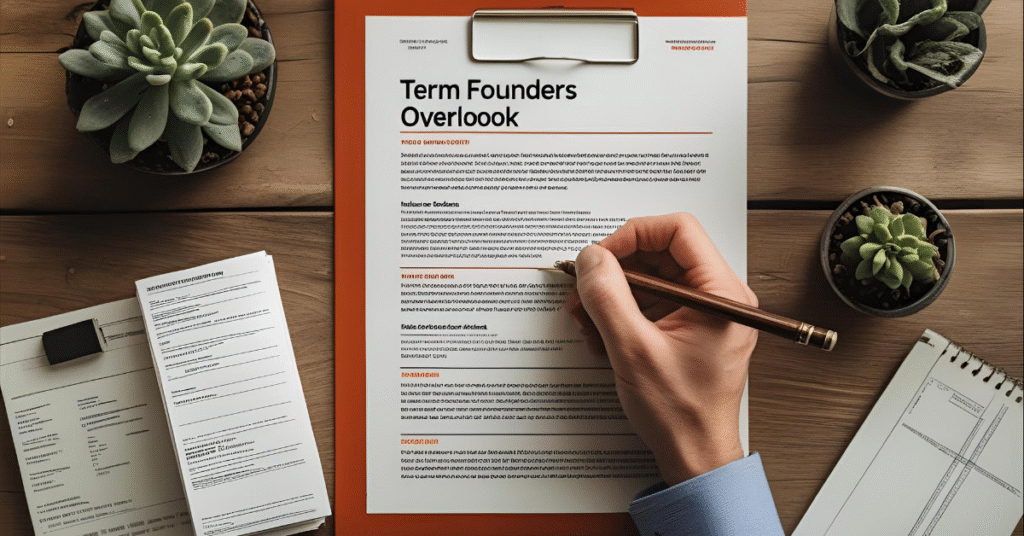Delhi | August 8, 2025 — Raising capital may feel like validation. But buried inside every funding high is a term sheet and that’s where founders often lose control without realizing it.
In 2020, two first-time founders of a promising SaaS company in Bengaluru celebrated a $2 million seed round. What they missed was a full ratchet anti-dilution clause buried deep in the term sheet. When their next round came at a down valuation, the clause kicked insignificantly diluting their own stake. They still ran the company, but no longer truly owned it.
They’re not alone.
What Is a Term Sheet?
A term sheet is a non-binding document outlining the basic terms and conditions under which an investor agrees to invest. It covers valuation, equity split, board structure, rights, and clauses that shape the long-term power balance between founders and investors.
Most founders focus on valuation but overlook protective clauses that can tip the scale.
Key Clauses Founders Often Miss
| Clause | What It Means | Why It Matters |
|---|---|---|
| Liquidation Preference | Determines payout order during exit | A 2x preference means investors get twice their money first |
| Anti-Dilution Rights | Adjusts investor ownership in a down round | Can dilute founders significantly if not negotiated |
| ESOP Pool Pre-Money | Options allocated before investment, often from founder equity | Reduces effective ownership if not carefully calculated |
| Board Composition | Who holds decision-making power on the board | Investors may demand control or veto rights |
| Drag-Along/Tag-Along | Rights that allow forced or conditional exits | Can push founders into unwanted sale or restrict exit options |
ESOP: The Silent Diluter
While ESOPs are essential to attract talent, the mistake many early founders make is agreeing to a pre-money ESOP expansion which comes out of their equity, not the investor’s. A 15% ESOP pool carved out before investment can mean the founder owns 15% less than expected post-deal.
Control Is Not Just About Shares
Sometimes, founders secure a high valuation but end up with less control. Why? Because board seats, voting rights, and information access are often structured in favor of the investors. Without legal scrutiny, even majority ownership can become symbolic.
Final Take
Term sheets aren’t legal formalities. They’re strategic roadmaps. A single overlooked clause today can shape your company’s exit tomorrow.
Founders must read every line, ask every question, and treat negotiations like they’re protecting a company 10x its current size.
If you’re building for scale, build with clarity. For More StartupByDoc


